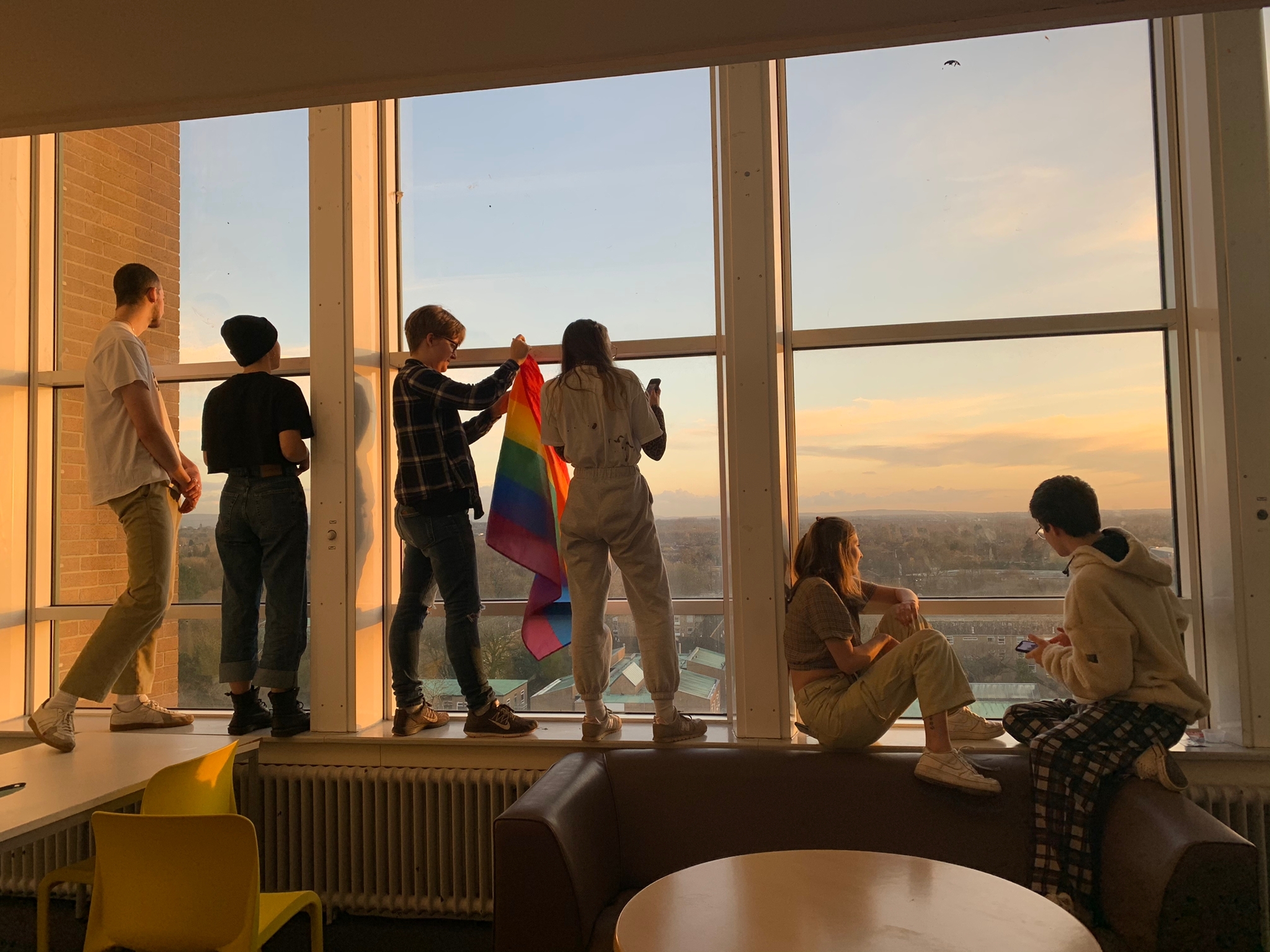Manchester Students Are Going on Rent Strike Again

Inspired by the success of 2020-21, when strikers won £10.8m, students at the University of Manchester are again threatening to withhold rent.
On Monday, the student group UoM Rent Strike announced another strike in response to the cost of living crisis.
The strikers intend to withhold their second of three rent payments, which is due on 19 January. Their conditions for ending the strike are a 30% rent reduction for all halls residents for the remainder of the academic year plus a 30% refund on the first rent instalment paid by students in October.
70%.
One of the strike organisers is Fraser McGuire, 19, a first-year history and politics student from Derbyshire. He says that despite living in the cheapest type of room in the cheapest halls on campus, he spends almost 70% of his £6,576 maintenance loan on rent (the National Union of Students has long argued that affordable rent in student halls should be no more than 50% of the maximum maintenance loan).
“Financial worry was one of the biggest things for me for going to uni, just in terms of being able to afford basic stuff,” McGuire tells Novara Media. He soon discovered he wasn’t alone.
McGuire says conversations about money began almost as soon as term started; he’d later learn that over one in 10 UK students have been using food banks during the cost of living crisis, while over half are facing financial difficulties.
Manchester University has taken some action to support its students through the current crisis: in mid-November, it announced a £170 one-off payment for all students as part of a £9m cost-of-living package (Novara Media reached out to the university for comment, but did not receive a response). Yet given the university recently reported an operating surplus of £119.7m for 2021-22, almost twice the previous year’s, many students felt this was inadequate. By late November, discussions had moved to direct action.
It helped that many of the would-be strikers were already politically active: McGuire currently sits on Young Labour’s national committee and previously participated in the student-led anti-academisation campaign at his secondary school. He was also aware of the previous strike – and its runaway success.
£10.8 million.
In the autumn of 2020, a wave of student protests and rent strikes broke out in Manchester over housing conditions, with some being expected to pay for halls they were unable to move into due to lockdown while others found themselves fenced into halls without warning (the university later claimed to have installed the fencing to prevent household mixing). Around 300 students withheld their rent; hundreds more marched through campus tearing down fencing.
The campaign culminated in a two-week occupation of the tower of one of the student halls, resulting in the university agreeing to a 30% blanket rent reduction for the remainder of the academic year and non-payment of rent for students locked down at home. Students at the university later passed a vote of no confidence in the university’s vice chancellor Dame Nancy Rothwell by a margin of 89%; the university refused to recognise it, citing low turnout.
The militancy of the Manchester rent strike sparked many more: by January 2021, Greater Manchester Housing Action estimated that around 5,000 students across the UK – including at Dundee, Sussex, Cambridge, Bristol and Portsmouth – were rent striking.
Wolfie Mcleish is a 19-year-old first-year PPE student and has already cancelled his Direct Debit to Manchester; his maintenance loan only just covers the cost of his halls, the second-cheapest on campus.
Mcleish says that the success of the previous rent strikers filled him with confidence: “It [gives me] a massive sense of empowerment [that] previous students who were [living] in the halls that we were in, sleeping in the same beds, [won] their strike against the university, especially in the conditions they were living in.”
Lessons from history.
Since the strike is led by first-year students, as it’s they who primarily live in university-owned accommodation (other students mostly rent privately), there was a risk that this year’s campaign would lack institutional memory. This year’s organisers preempted the problem by reaching out late last year to ex-strikers, who shared things like sign-up form templates and media contacts. They also offered some salient advice: reassure your strikers.
Mcleish says “the big reservation” his friends have about the strike “is how it could affect them on an individual level, like [their] credit score. Because for most students, [paying university rent is] their first financial big step.”
Speaking to McGuire, it’s clear the organisers are prioritising assuaging these anxieties. “There’s never been a successful case of disciplinary action brought by a university against a student for rent striking. But at the same time, obviously it’s a big worry for a lot of students who’ve never been involved [in rent strikes]. […] It’s a lot [of people’s] first time ever getting involved in direct action.” The campaign has produced a Q&A addressing the most common questions they get asked.
Clearly, they’re doing something right: McGuire says the campaign is currently signing up around 30 students per day. He’s confident the strike can hit its target of 150 sign-ups by the payment deadline of 19 January. If it does, the university will lose almost a quarter of a million pounds overnight (averaging £1,500 per striking student) – much more if the strike continues through to the third rent installment.
If the university refuses to back down, McGuire says the strikers are willing to consider their options (though further tactics will be voted on by the strikers collectively). “We have some people who are willing to escalate [to] occupation,” he says, though again emphasises that students’ safety is the campaign’s priority: “We’re doing this to support students in financial difficulty, not to get people in trouble.”
Rivkah Brown is a commissioning editor and reporter at Novara Media.


